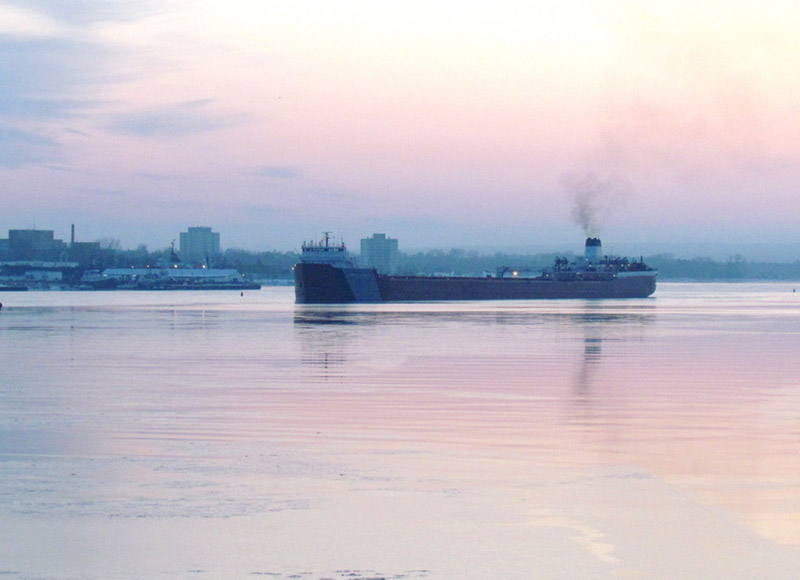The Coast Guard is proposing a rate hike for Great Lakes pilots primarily to cover eight new pilots for the 2017 shipping season.
The approximate 14% increase request comes after a coalition of Great Lakes ports and shippers asked a federal court earlier this year to reduce rates at least 20.6%. Their suit claims calculations were flawed and the increases arbitrary and capricious, and some now say the Coast Guard should have put the new rates on hold until the suit is settled.
The Coast Guard says the new pilots are needed because of workload and fatigue factors as well as the number of older pilots approaching retirement. For example, in District Two, which includes Lake Erie and the Detroit River, four pilots — or 30% of the total — are over 62. “Waiting until these pilots retire to replace them will result in significant delays,” the proposal reads.
The agency also suggests adding a mandatory change point near Iroquois Lock on the St. Lawrence Seaway because the trip between Snell Lock and Cape Vincent takes 11 hours. “We want to limit a U.S. registered pilot's assignment to 8 hours in designated waters in order to mitigate fatigue,” the Coast Guard said.
The Coast Guard establishes rates for Great Lakes pilots while rates everywhere else in the country are set at the local level. The rates must be reviewed annually.
The proposal keeps annual pilot compensation at the 2016 rate of $326,114. Shippers would pay $2.6 million more than the $19.1 million needed this year with most going for additional pilots.
“Vessel operators have been suffering some pretty heavy duty increases in the past couple of years,” said Stuart Theis, executive director of the U.S. Great Lakes Shipping Association.
Both he and Steve Fisher, executive director of the American Great Lakes Ports Association, say the Coast Guard should have delayed the new rule. “There are elements in that rate proposal that are being challenged in the litigation,” Theis said. Both groups are part of the coalition that sued the Coast Guard in May in federal court in the District of Columbia.
“Last year, the Coast Guard didn’t just readjust their rates, they modified their methodology,” Fisher said. Charges vary by ship size, and the Coast Guard failed to account for the weighting factor, so large ships yield higher pilotage fee revenues than smaller ones. “They overcalculated how much money is needed by underestimating how much money is coming in.”
The Coast Guard denied its rate-setting was flawed.
Capt. Dan Gallagher, president of the Lakes Pilots Association Inc., Port Huron, Mich., and a vice president of the American Pilots Association, earlier told WorkBoat that the Coast Guard “did a very detailed analysis of the rates. We believe industry does not have a case.”
U.S. District Judge Rudolph Contreras in late August granted a motion by the Lakes Pilots, the St. Lawrence Seaway Pilots Association, and the Western Great Lakes Pilots Association to join the suit on the Coast Guard side.
The pilots “undoubtedly have a substantial interest in the outcome of this litigation, because any reduction in the Coast Guard’s 2016 pilotage rates will immediately affect their compensation,” the judge said.
Comments on the Coast Guard’s proposal are due by Dec. 19. The changes would take effect 30 days after publication of the final rule.
View the full proposal for instructions on how to submit comments.




